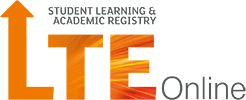Promoting Student Engagement for Retention and Success – At a time when staff and students alike are having to demonstrate their capacity to flex and adapt to hybrid modes of learning and teaching for extended periods of time – it has never been more important to preserve the quality of the learning experience and academic standards to ensure that students from all backgrounds are still able to access engaging and relevant learning opportunities in the context of their studies. For the purposes of this conference, we position the concept of “student engagement” to reflect the whole student experience inside and beyond the classroom…
Support Available to Schools
The LTE team is here to support you in your planning, preparation and delivery of semester 2 teaching. You may wish to email us with your queries at elearning@tees.ac.uk. We also offer one-to-one or small group online drop-in sessions for
Tips from Research on Effective Hybrid Teaching
Every student has unique individual learning needs and preferences and a huge advantage of introducing hybrid learning is the increased flexibility that it provides. The hybrid model of learning and teaching has been designed to meet the demands of online
Principles of Course Design for Hybrid Learning toolkit – Part 5: Formative – Putting learning into application
Formative assessment is a pedagogical approach that refers to a wide variety of methods that are used to conduct in-process evaluations of student comprehension, learning needs, and academic progress during a lesson, module, or course. Formative assessments are for learning, while summative assessments are of learning and do not contribute to credit points…
L&T Guidance and Support – FAQs
Below are a series of Frequently Asked Questions (FAQs) to help colleagues navigate the extensive resources available on LTE Online.
Getting Started with Accessibility Features on Apple Devices
Apple have curated several short videos to help discover how the Accessibility Features built into your Apple devices can help you do more. These features include Speak Screen, Assistive Touch and custom commands with voice control…
Designing Take Home Examinations
As we continue our journey in the planning and designing for delivery of courses as part of a hybrid model, we must keep in mind that principles of good assessment design such as equitable and appropriate assessment methods, clear and transparent criteria, and timely feedback, remain key considerations…
Principles of Course Design for Hybrid Learning
Principles of Course Design: planning for multiple modes of learning and teaching As we embark on business recovery, our focus is now on embedding enhancements, nurturing excellence in delivery and strengthening resilience in the event of future disruption. From September
Staff Guides to Support Practice through the Hybrid Delivery Model
From September 2020, the University will adopt a hybrid delivery model consisting of on-campus and online delivery, aligned with Government social distancing restrictions. This model is distinctive from existing forms of online or blended delivery…
Reviewing Practice – What Can I do to Effectively Nurture Creative Learners?
It is for us as educators to decide the role creativity plays within our courses and modules in preparing our students for increasingly uncertain future professional lives. The following prompts are designed to support reflection and inform action and can provide a useful source of data from which to evidence or benchmark current practice, progress, and impact, or to inform planning and/or decision making for future curriculum developments…
